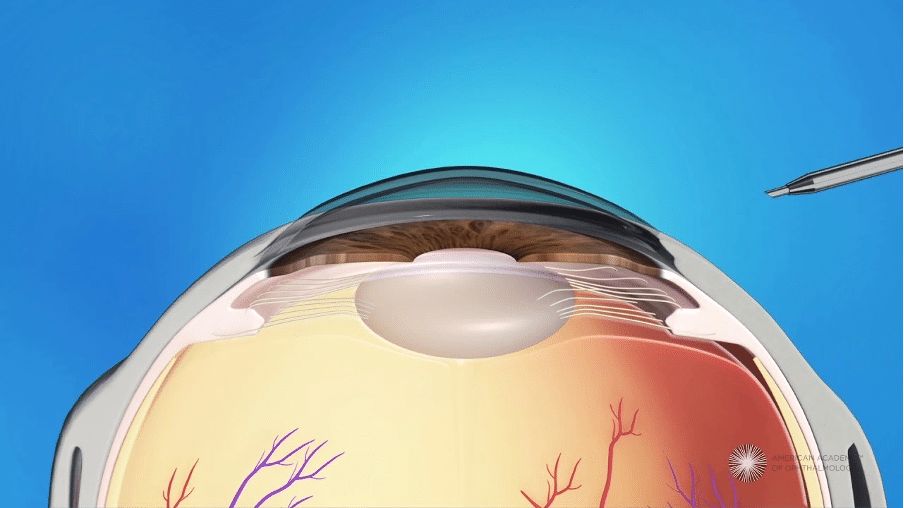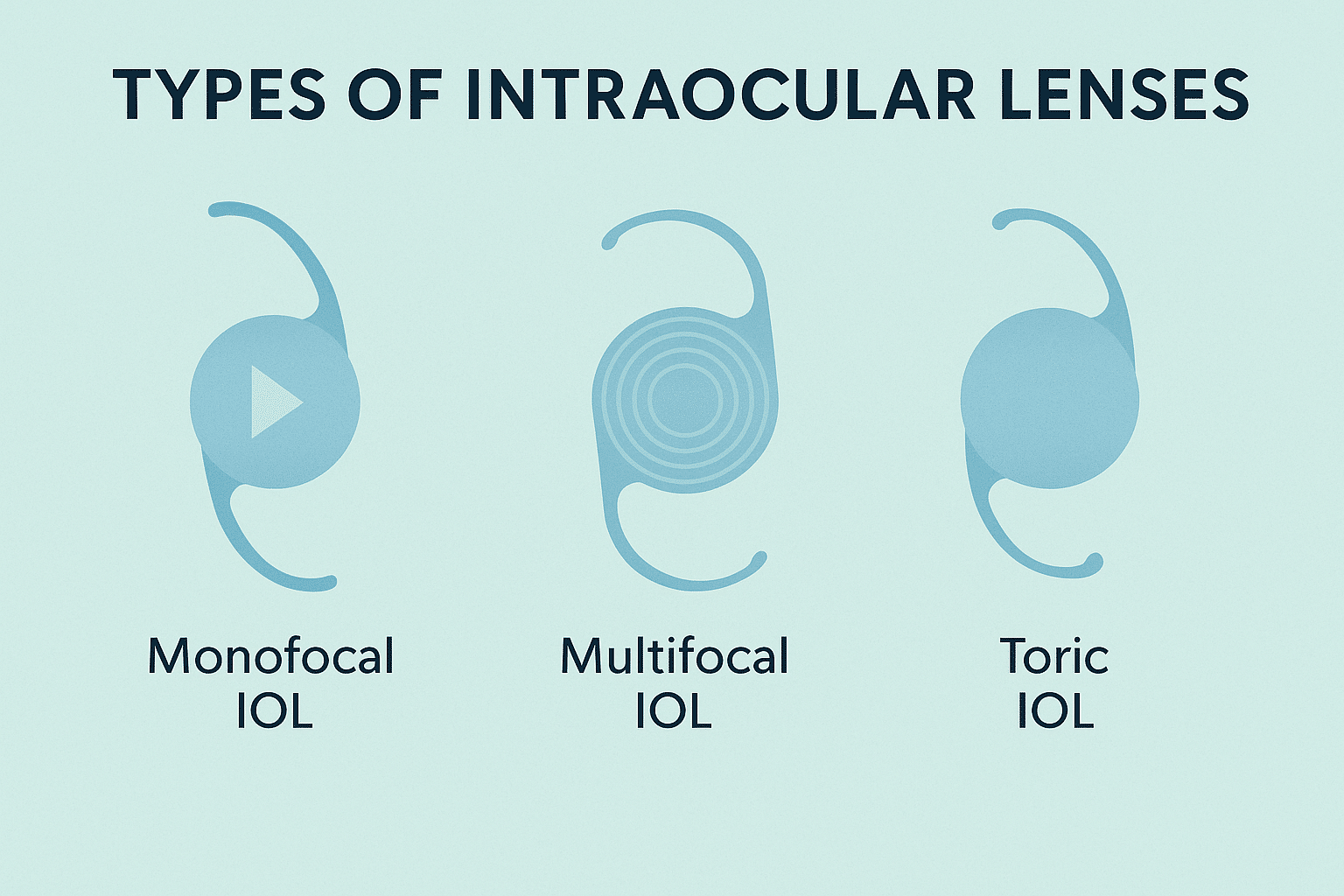The results of lens replacement typically last a lifetime. After the procedure, 95% of patients can pass their driving eye test without glasses. About 90% of people don’t need glasses or contact lenses for any activities.
Refractive lens exchange (RLE) provides excellent long-term vision correction. The procedure’s safety record shows that 95% of patients achieve 20/40 vision or better. Serious complications are rare, affecting only 1 in 500 cases. Patients often see immediate results, and the recovery time moves quickly. The success rate matches cataract surgery at 99%.
Precision Vision London’s expert surgeons use advanced technology to guide patients through their vision correction experience. Premium multifocal lenses help 80-93% of patients live without glasses. RLE results should serve you for life if no other eye problems develop. This piece explores the surgery details, its lasting effects, recovery process, and ways to maintain optimal vision results throughout your life.

What is lens replacement surgery and who is it for?
Lens replacement surgery is a modern vision correction procedure that replaces your eye’s natural lens with an artificial intraocular lens (IOL). This solution permanently fixes various vision problems and gives you stable, clear sight for years ahead.
Understanding refractive lens exchange (RLE)
RLE is similar to modern cataract surgery in technique. The main goal differs—cataract surgery removes a cloudy lens, while we use RLE to reduce dependency on glasses or contact lenses. Your surgeon removes the natural lens and puts in a carefully selected artificial lens during this quick 15-30 minute procedure. You’ll stay awake during the surgery with local anaesthetic that makes your eye completely numb.

Common vision problems it treats
RLE works well for many vision challenges that might limit your quality of life. The procedure can fix:
- Presbyopia (age-related difficulty focusing on near objects)
- Myopia (short-sightedness)
- Hyperopia (long-sightedness)
- Astigmatism (uneven curvature of the eye)
More importantly, lens replacement surgery stops cataracts from developing, because artificial lenses can’t become cloudy like natural ones. This benefit helps people in their 50s and beyond who might need cataract surgery later.
Ideal age and eye health for candidacy
People over 50 with glasses prescriptions higher than normal laser eye surgery ranges make excellent candidates for RLE. RLE becomes the best vision correction choice for people over 65, especially when early cataracts appear.
The safety record speaks for itself, with more than 3 million surgeries performed annually in Europe alone. About 95% of patients see well enough to drive after the procedure. Your eye health plays a vital role in determining if this surgery suits you. Our specialists at Precision Vision London will really get into your eye health details to see if lens replacement works for you. We look at lens clarity, flexibility, and any existing eye conditions like glaucoma (stable glaucoma usually doesn’t rule out treatment).
How long do the results of lens replacement last?
Natural lenses can develop cataracts, but artificial lenses from lens replacement surgery stay in your eyes permanently.
Is lens replacement surgery permanent?
The answer is a soaring win—intraocular lens (IOL) implants will last for the rest of your life. Clinical studies back this up, and one study shows excellent vision stability with minimal changes seven years after implantation. Here at Precision Vision London, we only use premium-quality IOLs that last exceptionally long. Lens replacement gives you a lifelong solution—but is it right for you?
What affects the longevity of results?
Your artificial lens will stay permanent, but several things can affect your long-term vision quality:
- Your age and eye health – You might develop conditions like macular degeneration or glaucoma that aren’t related to your lens
- The type of lens you choose – Each IOL type comes with different benefits and possible side effects
- Lens surface changes – Research shows certain lens modifications can reduce complications even after 10 years
- How you care for your eyes – Following your doctor’s advice helps you get the best results
Patient satisfaction stays remarkably high years after surgery. Studies show about 90% of patients say they’re “very satisfied” or “somewhat satisfied” with their vision more than five years after surgery.
Can vision change again over time?
Your vision might change as your eyes age, even with permanent lens implants. Some patients develop posterior capsule opacification (PCO) or “secondary cataracts”—where the membrane behind the artificial lens gets cloudy. This happens to a small number of patients months or years later but a quick laser procedure fixes it easily. A few people might need an IOL exchange if they have complications or want a different lens type. Most patients enjoy clear, stable vision without needing more treatment. Eye exams are vital after lens replacement surgery. They help track your eye health and make sure your vision stays sharp throughout your life.
What to expect after surgery: recovery and results
Your experience to achieve clear vision continues after lens replacement surgery. A good understanding of the recovery process will help you get the best results.
Lens replacement surgery recovery time
Recovery from refractive lens exchange takes three to four days for the original healing. Notwithstanding that, your vision might take up to two weeks to stabilise completely. You may experience mild discomfort and blurred vision during this time as your eye adapts to the new lens. Most patients return to work after three days. You should stay away from dusty or smoky environments for about two weeks after the procedure.
When will vision improve?
Most patients see better vision within 48 hours after surgery. Your vision might appear bright but somewhat blurred because of pupil dilation and early healing reactions. Vision gets better over the first few weeks. Each person recovers differently, but most patients see substantial improvement by their one-week follow-up appointment.
Do you still need glasses after surgery?
The surgery reduces your need for glasses by a lot, but some patients might need them for specific activities. Clinical data shows that doctors can determine the need for glasses between one to four weeks after the procedure. Your choice of intraocular lens (IOL) affects whether you’ll need glasses. Monofocal lenses that focus on distance vision might require reading glasses. Multifocal lenses can improve both distance and reading vision.
How to care for your eyes post-surgery
Good aftercare is a vital part of getting optimal results. At Precision Vision London, we provide detailed guidelines:
- Always wash your hands before touching your eyes
- Avoid rubbing your eyes completely
- Use prescribed anti-inflammatory and antibiotic eye drops as directed
- Wear your protective shield in the shower to prevent soap or shampoo contact
- Avoid swimming for four to six weeks
- Do not drive until our clinical team approves
Note that you should attend all scheduled follow-up appointments to track your recovery progress. These check-ups help our specialists address any concerns quickly and ensure your lens replacement results last a lifetime.
Choosing the right lens and clinic for lifelong results
Your satisfaction with lens replacement surgery depends on choosing the right intraocular lens (IOL) and a reliable clinic. These decisions will shape your vision quality for decades.
Types of intraocular lenses (IOLs)
Your lifestyle and visual needs will determine which IOL option works best for you:
- Monofocal lenses give sharp vision at one distance (usually far), making them perfect for driving. You’ll need reading glasses with these lenses.
- Multifocal lenses have multiple focusing zones that provide clear vision at different distances. These advanced lenses help most people live without glasses – 80% of patients no longer need them.
- Extended depth of focus (EDOF) lenses use one extended focal point. They deliver better distance and intermediate vision while keeping good contrast sensitivity.
- Toric lenses fix astigmatism among other vision problems. You can get them in monofocal, multifocal and EDOF versions.

How lens choice affects long-term vision
The lens you pick shapes your visual experience throughout life. Understanding trade-offs will help you decide. Monofocal lenses give predictable results and excellent contrast sensitivity, but you’ll need reading glasses. Multifocal lenses might create halos or glare, particularly at night. People adapt differently to their new lenses. Some feel comfortable in weeks, others take several months. Your daily routine, hobbies, and work requirements should guide this vital decision.
Why Precision Vision London is trusted for lens surgery
Precision Vision London gives expert guidance and long-term care that leads to lasting clarity. Book your consultation today. Our clinic stands independent, with no ties to manufacturers or consultants. This independence lets us recommend lenses that match your vision and lifestyle perfectly. We use cutting-edge technology like the Alcon Refractive Suite.
Each patient gets a custom treatment plan based on their eye’s unique characteristics. Our detailed 12-month post-operative care programme helps you reach your vision goals, including touch-up procedures if needed. Our patients love our personal approach, and many achieve 20/20 vision in both eyes. Experts take pride in delivering exceptional care with a patient-first philosophy that puts your long-term satisfaction first.
Conclusion
Lens replacement surgery is a great solution if you want to break free from glasses and contact lenses. Your trip through this process has shown that a well-performed lens replacement will give lifelong results. The artificial lenses are designed to stay in your eyes permanently. Your natural lens might develop cataracts later, but these premium artificial lenses take care of that worry.
Without doubt, this procedure does more than just fix your vision. A 95% success rate for achieving driving standard vision shows why many patients over 50 think over this life-changing option. You’ll likely stay independent from glasses, especially when you have multifocal lenses that work for both distance and near vision. Most patients recover quickly. Many see most important improvements in just 48 hours, though it takes about two weeks for vision to stabilise fully. This short recovery time makes lens replacement surgery even more appealing.
Your lasting satisfaction depends on picking the right lens type and a trusted clinical team. Different lifestyle needs just need different lens solutions – from monofocal and multifocal to EDOF and toric options. Precision Vision London matches these premium lenses to your visual needs and daily activities.
Regular eye check-ups after surgery help keep your vision quality excellent. The artificial lens stays permanent, but your eye health still needs monitoring as you age. Precision Vision London’s detailed 12-month aftercare programme will give a quick response to any concerns and protects your investment in better vision. This decision shapes your vision for decades ahead. Precision Vision London’s dedication to personal care, innovative technology, and independent advice means you’ll get treatment that fits your unique eyes perfectly. Your trip toward freedom from glasses deserves expert guidance at every step.
Key Takeaways
Lens replacement surgery offers a permanent vision solution that can transform your quality of life for decades to come.
- Lens replacement results are lifelong – artificial lenses are designed to last permanently, with 95% of patients achieving driving standard vision without glasses
- Recovery is remarkably quick – most patients notice significant vision improvement within 48 hours and can return to work after just 3 days
- Success rates are exceptionally high – over 95% of patients achieve 20/40 vision or better, with serious complications occurring in only 1 in 500 cases
- Lens choice determines long-term satisfaction – multifocal lenses provide 80-93% spectacle independence, whilst monofocal lenses excel at distance vision but require reading glasses
- Age and eye health matter for candidacy – those over 50 with prescriptions beyond laser surgery range are ideal candidates, particularly those over 65
The procedure not only corrects current vision problems but also prevents future cataract development, making it a comprehensive solution for age-related vision changes. With proper lens selection and expert care, lens replacement surgery delivers the freedom from glasses that lasts a lifetime.
FAQs
Q1. How long do lens replacement results typically last? Lens replacement results are designed to be permanent. The artificial lenses implanted during surgery are engineered to remain in your eyes for life, providing long-lasting vision correction.
Q2. Will I need glasses after lens replacement surgery? While lens replacement significantly reduces dependency on glasses, some patients may still require them for specific activities. The need for glasses typically depends on the type of intraocular lens (IOL) chosen and individual healing outcomes.
Q3. What is the success rate of lens replacement surgery? Lens replacement surgery has a high success rate, with 95% of patients achieving vision of driving standard or better following the procedure. Over 95% of patients achieve 20/40 vision or better, with serious complications occurring in only 1 in 500 cases.
Q4. How long does recovery take after lens replacement surgery? Most patients notice significant vision improvement within 48 hours after surgery. Initial healing typically takes 3-4 days, with complete visual stabilisation occurring within two weeks. Most people can return to work after approximately three days.
Q5. Can lens replacements be changed or updated in the future? While lens replacements are designed to be permanent, in rare cases, an IOL exchange may be necessary. This could be due to incorrect lens power, complications, or a desire to upgrade to newer technology. However, such exchanges are uncommon as IOLs are meant to last a lifetime.
Authors & Reviewer
-
 Olivia: Author
Olivia: AuthorHi, I'm Olivia, a passionate writer specialising in eye care, vision health, and the latest advancements in optometry. I strive to craft informative and engaging articles that help readers make informed decisions about their eye health. With a keen eye for detail and a commitment to delivering accurate, research-backed content, I aim to educate and inspire through every piece I write.
-
 Dr. CT Pillai: Reviewer
Dr. CT Pillai: ReviewerDr. CT Pillai is a globally recognised ophthalmologist with over 30 years of experience, specialising in refractive surgery and general ophthalmology. Renowned for performing over 50,000 successful laser procedures.

